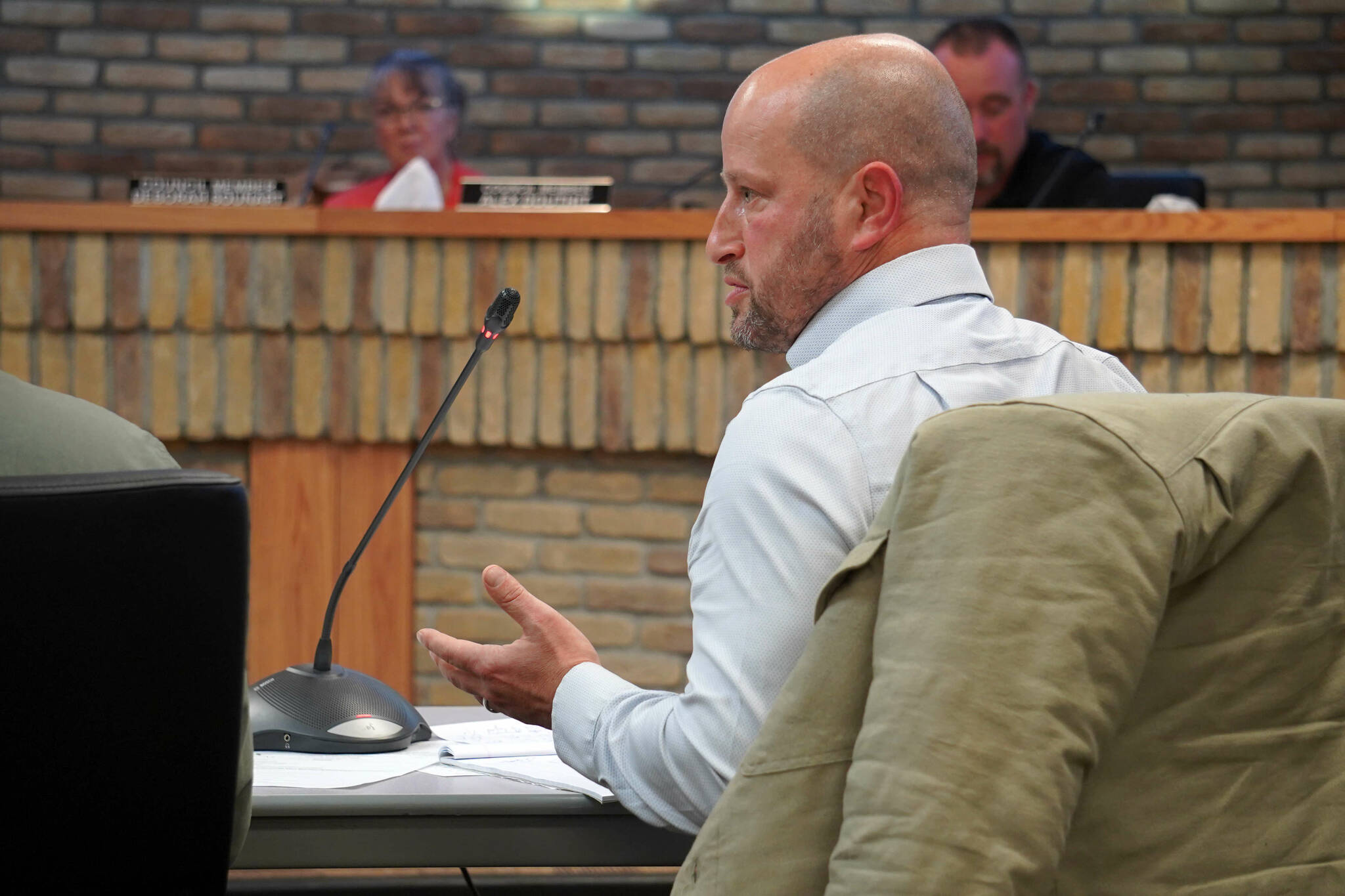The monthslong effort by Canna Get Happy owner Sandra Millhouse to obtain a permit concluded Wednesday with the issuance of a written decision by Kenai’s board of adjustment denying her appeal of an August decision by the City of Kenai Planning and Zoning Commission.
On Aug. 14, the commission unanimously denied requests by Millhouse for a variance permit and a conditional use permit to operate a retail marijuana establishment at Swanson Square in Kenai, near the Salvation Army.
The Board of Adjustment — composed of Kenai City Council members Henry Knackstedt, Victoria Askin, Phil Daniel, Alex Douthit and Deborah Sounart — met on Oct. 15 to hear an appeal of that decision by Millhouse and her husband, Troy.
Millhouse said, at the commission meeting and again at the meeting of the board of adjustment, that she had purchased the Swanson Square property after being told by then-Kenai Planning Director Linda Mitchell that the location was compliant with city code. Later, Millhouse’s application for a conditional use permit was rejected because the building was found to be within the city’s defined buffer distances; specifically, the property is too close to Steve Shearer Memorial Ball Park and the Kenai Little League Fields.
At the board of adjustment meeting on Oct. 15, Millhouse said she wouldn’t have purchased the property if she knew she would be unable to operate a dispensary there.
Interim Planning Director Brandon McElrea, in a staff report from Kenai’s planning department, said during the meeting that no commercial marijuana establishments are permitted within 500 feet of recreational facilities or youth centers. He said that the appeal fails to meet the criteria needed both to grant a variance and to grant a conditional use permit.
Kenai City Attorney Scott Bloom said that, from the city’s perspective, “we certainly are not under the impression that you would bring anything negative to our community.” He said he hopes she can find another location in the city to pour similar energy and opportunity into. But, he said, the board and the planning and zoning commission both have to operate within the confines of city code.
During Millhouse’s testimony, she said that Kenai’s zoning code should evolve, that the marijuana industry isn’t the same entity it was when the code was established. Bloom said that, even if she’s right, such a change would instead be the responsibility of the Kenai City Council as a legislative body.
“Unfortunately, from my perspective, this case is really easy,” Bloom said. “A variance cannot be granted to allow a commercial marijuana establishment anywhere, because it’s not a principally permitted use. That is straight, black and white law.”
He cited also the city’s previous consideration of this same issue in this same location, when the owners of The Gardens, another marijuana dispensary, tried and failed to open a store in Swanson Square in 2016.
In a written decision of the board, published Wednesday, Nov. 13, they tackle separately two arguments raised by Millhouse.
Millhouse first raises an issue of “fairness,” the decision reads, because she allegedly received advice from the former planning director and also says that permits have been granted to other applicants in cases of incorrect measurement. She also challenges the interpretation of the city’s 500-foot buffer as incorrect — for example, though Swanson Square is found to be too close to the Steve Shearer ballpark, the latter property is oddly shaped and Swanson Square is actually around 1,300 feet from any actual ballpark facilities.
The board found that Millhouse, as a “sophisticated” business owner, should have understood that only the planning and zoning commission could grant a conditional use permit.
The decision includes a written statement by Mitchell, who says that she offered to provide a map of measurements and assist with preparations for a permit application.
“The board finds that it was not reasonable for the Appellants as sophisticated buyers to assume the conversations with the former Planning Director Mitchell insinuated approval by the Planning Commission,” the decision reads.
Further, it says that even if the board of adjustment had granted permits to appellants based on incorrect measurements, it wouldn’t empower them to violate Kenai city code and grant a permit in an instance where “it is clear” that the application does not meet the criteria.
Regarding the discussion about buffer distances, whether the term “outer boundary” ought to be measured to the edge of a facility or to the edge of a property, the board cites its own findings from the 2016 case centering on the same building.
“It was the intent of the City Council that ‘outer boundary’ was intended to mean the outer edge or boundary of the parcel on which the use buffered from is located,” that 2016 decision reads. “This conclusion leads to the finding that the proposed business is located within 500 feet of the outer boundary of two parcels containing ball fields and does not meet the buffer requirements.”
The state “uses the exact same 500-foot buffer interpretation.”
The board denied the applications for a variance permit and conditional use permit, upholding the decision of the planning and zoning commission.
A full recording of the board of adjustment meeting can be found on YouTube at “City of Kenai – Public Meetings.” The written decision can be found at kenai.city.
Reach reporter Jake Dye at jacob.dye@peninsulaclarion.com.

